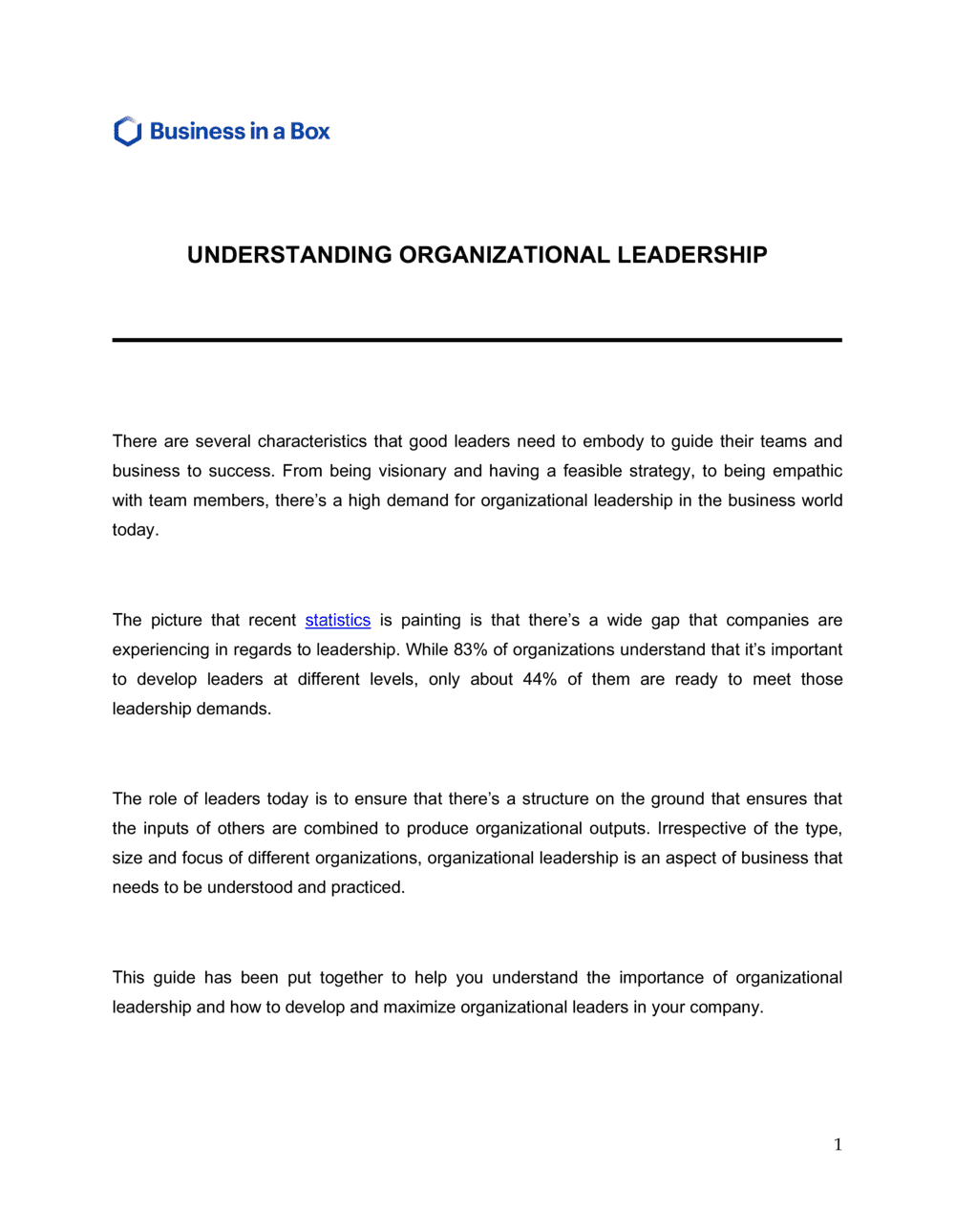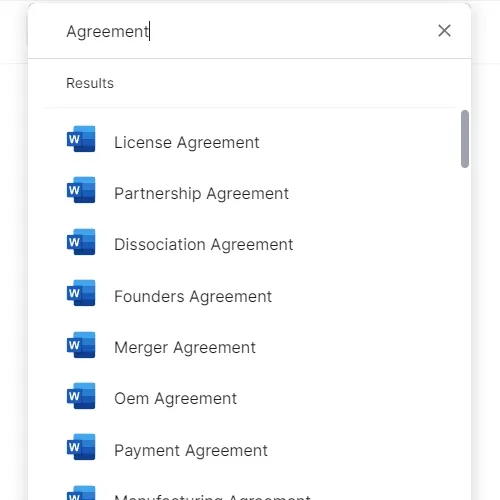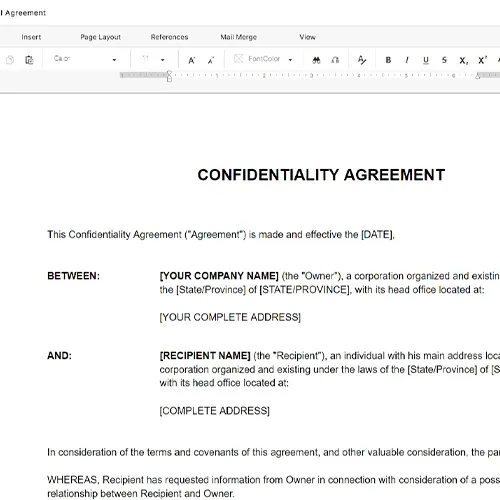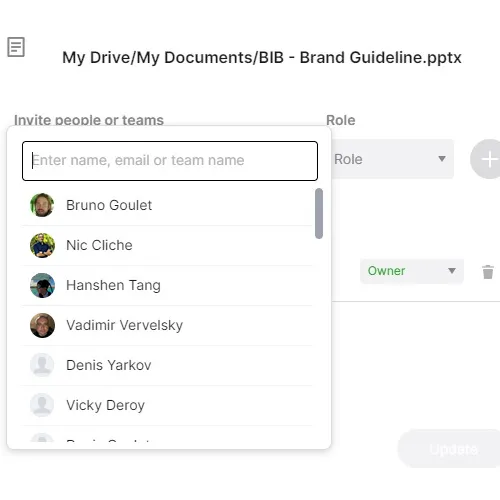Understanding Organizational Leadership Template

Document content
This understanding organizational leadership template has 6 pages and is a MS Word file type listed under our business plan kit documents.
Sample of our understanding organizational leadership template:
UNDERSTANDING ORGANIZATIONAL LEADERSHIP There are several characteristics that good leaders need to embody to guide their teams and business to success. From being visionary and having a feasible strategy, to being empathic with team members, there's a high demand for organizational leadership in the business world today. The picture that recent statistics is painting is that there's a wide gap that companies are experiencing in regards to leadership. While 83% of organizations understand that it's important to develop leaders at different levels, only about 44% of them are ready to meet those leadership demands. The role of leaders today is to ensure that there's a structure on the ground that ensures that the inputs of others are combined to produce organizational outputs. Irrespective of the type, size and focus of different organizations, organizational leadership is an aspect of business that needs to be understood and practiced. This guide has been put together to help you understand the importance of organizational leadership and how to develop and maximize organizational leaders in your company. What is Organizational Leadership? Organizational leadership is the competence to lead a group of people toward achieving the mission of an organization. It's also an approach to management that helps leaders design tactical goals for their various organizations while encouraging the individuals in the group to perform effectively and complete projects in accordance with the goals. Leaders who take this approach will usually have almost all these skills: Accepting the organization's mission and aligning it with the strengths of the team members Designing a strategic plan that follows the mission Executing plans to reach specific goals Holding team members accountable Communicating properly with team members Anticipating possible work challenges Innovating ways to meet the challenges Adjusting effectively to new circumstances Maintaining calmness through challenges Inspiring others to give work their best shot to achieve the same goal Carrying out all activities with inclusivity, authenticity, and integrity While some people are, indeed, born leaders, there are others that must learn these leadership behaviors. For this reason, degrees and programs in organizational leadership are available and remain valuable. They can help people who don't have these qualities built in them but are nonetheless ambitious to attain a certain level of organizational leadership. Organizational Leadership vs. Traditional Management Again, leadership is a practice where one individual determines the direction the team takes and influences and directs them toward a particular goal and mission. Organizational leadership is more than just an occupied position. It's a behavior, and that's what distinguishes leaders from traditional managers. Organizational leadership covers a broader scope of responsibility than traditional management. Organizational leadership ensures that the person in the role communicates the big picture - mission and vision, creates the tactical plan, and motivates team members to present their best selves and efforts, to achieve the goals that have been set in place right from the onset. Traditional management, on the other hand, only fulfills part of the big picture. What the typical manager does has been restricted to communicating leadership's direction, setting expectations, assigning tasks, solving problems, and completing the goals allotted to that group at a specific time. A leader can be a manager, but not all managers can be leaders. Organizational leadership is the all-encompassing field where a leader has the opportunity to strategically guide and manage a group of people in the organization to meet a common objective. Organizational leaders are not just about the organization. Rather, they focus on the company and the individuals simultaneously. Organizational leaders are also very versatile, as they are business savvy, innovative, and strong communicators. Soft skills like ethics, emotional intelligence, and vision are also important parts of their personal and business culture. The Importance of Organizational Leadership Through the years, traditional management has remained the norm, and several organizations seem to be just fine with it. However, with innovation and disruption taking over the business space at top speed, traditional ways of management don't seem to be the most ideal system anymore. Organizational leadership now is the goal, and every level needs to deliberate on how their present practices can be further developed or totally changed to meet imminent needs.
3,000+ Templates & Tools to Help You Start, Run & Grow Your Business

Document content
This understanding organizational leadership template has 6 pages and is a MS Word file type listed under our business plan kit documents.
Sample of our understanding organizational leadership template:
UNDERSTANDING ORGANIZATIONAL LEADERSHIP There are several characteristics that good leaders need to embody to guide their teams and business to success. From being visionary and having a feasible strategy, to being empathic with team members, there's a high demand for organizational leadership in the business world today. The picture that recent statistics is painting is that there's a wide gap that companies are experiencing in regards to leadership. While 83% of organizations understand that it's important to develop leaders at different levels, only about 44% of them are ready to meet those leadership demands. The role of leaders today is to ensure that there's a structure on the ground that ensures that the inputs of others are combined to produce organizational outputs. Irrespective of the type, size and focus of different organizations, organizational leadership is an aspect of business that needs to be understood and practiced. This guide has been put together to help you understand the importance of organizational leadership and how to develop and maximize organizational leaders in your company. What is Organizational Leadership? Organizational leadership is the competence to lead a group of people toward achieving the mission of an organization. It's also an approach to management that helps leaders design tactical goals for their various organizations while encouraging the individuals in the group to perform effectively and complete projects in accordance with the goals. Leaders who take this approach will usually have almost all these skills: Accepting the organization's mission and aligning it with the strengths of the team members Designing a strategic plan that follows the mission Executing plans to reach specific goals Holding team members accountable Communicating properly with team members Anticipating possible work challenges Innovating ways to meet the challenges Adjusting effectively to new circumstances Maintaining calmness through challenges Inspiring others to give work their best shot to achieve the same goal Carrying out all activities with inclusivity, authenticity, and integrity While some people are, indeed, born leaders, there are others that must learn these leadership behaviors. For this reason, degrees and programs in organizational leadership are available and remain valuable. They can help people who don't have these qualities built in them but are nonetheless ambitious to attain a certain level of organizational leadership. Organizational Leadership vs. Traditional Management Again, leadership is a practice where one individual determines the direction the team takes and influences and directs them toward a particular goal and mission. Organizational leadership is more than just an occupied position. It's a behavior, and that's what distinguishes leaders from traditional managers. Organizational leadership covers a broader scope of responsibility than traditional management. Organizational leadership ensures that the person in the role communicates the big picture - mission and vision, creates the tactical plan, and motivates team members to present their best selves and efforts, to achieve the goals that have been set in place right from the onset. Traditional management, on the other hand, only fulfills part of the big picture. What the typical manager does has been restricted to communicating leadership's direction, setting expectations, assigning tasks, solving problems, and completing the goals allotted to that group at a specific time. A leader can be a manager, but not all managers can be leaders. Organizational leadership is the all-encompassing field where a leader has the opportunity to strategically guide and manage a group of people in the organization to meet a common objective. Organizational leaders are not just about the organization. Rather, they focus on the company and the individuals simultaneously. Organizational leaders are also very versatile, as they are business savvy, innovative, and strong communicators. Soft skills like ethics, emotional intelligence, and vision are also important parts of their personal and business culture. The Importance of Organizational Leadership Through the years, traditional management has remained the norm, and several organizations seem to be just fine with it. However, with innovation and disruption taking over the business space at top speed, traditional ways of management don't seem to be the most ideal system anymore. Organizational leadership now is the goal, and every level needs to deliberate on how their present practices can be further developed or totally changed to meet imminent needs.
Easily Create Any Business Document You Need in Minutes.

Access over 3,000+ business and legal templates for any business task, project or initiative.

Customize your ready-made business document template and save it in the cloud.

Share your files and folders with your team. Create a space of seamless collaboration.
Templates and Tools to Manage Every Aspect of Your Business.
Business in a Box Covers Every Business Department
Includes 16 Types of Business Documents You Need
and Achieve Your Business Goals Faster.
